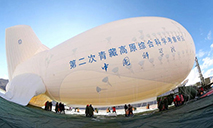US may lack ‘ability to lead IPEF, reconcile interests’ with members

Illustration: Chen Xia/GT
As the US announced on Monday its Indo-Pacific Economic Framework (IPEF), a plan widely believed to be aimed at isolating China, observers noted that the comprehensive economic framework may take years to take shape and could become something the US itself may find hard to drive, but they added that it is still a menace that China needs to address.
As a response, Chinese State Councilor and Foreign Minister Wang Yi emphasized on Monday in a speech delivered to the 78th Session of the Economic and Social Commission for Asia and the Pacific that "the concept of Asia-Pacific should not be diluted, and Asia-Pacific cooperation should not be disrupted."
The remark followed Wang's Sunday comment on the so-called US "strategy" which aims not only to erase the name of "Asia-Pacific" and effective regional cooperation framework in the Asia-Pacific region, but also to efface the achievements and momentum of peace and development fostered by regional countries through decades of joint efforts. Wang noted that anyone trying to use a framework to isolate China will eventually isolate itself, and the one making up rules to exclude China will be abandoned by the times.
The US and 12 other countries - together accounting for 40 percent of world GDP - announced the IPEF, a highlight of US President Joe Biden's Asia trip, on Monday. Biden is also set to attend a Quad summit in Japan on Tuesday.
Chinese analysts said that Wang's emphasis on "Asia-Pacific" is to reaffirm that the region's prevailing trend is cooperation, which goes against the confrontation heralded by the US' so-called IPEF that has geopolitical aims.
Still, US officials could not help bragging about the "overwhelming and broad-scale response from the Indian subcontinent, to Down Under, to Southeast Asia, to Northeast Asia."
Foreign Ministry spokesperson Wang Wenbin told a routine press conference on Monday that China is happy to see initiatives boosting regional cooperation but is firmly opposed to schemes that try to stir up discord and confrontation. Wang urged the US to follow free trade rules, rather than trying to reverse regional integration by setting up its own game.
An 'economic NATO'
The initial list of member countries of IPEF, as disclosed on Monday, is similar to that of the Regional Comprehensive Economic Partnership (RCEP), with the absence of China, Laos, Cambodia and Myanmar and with the addition of the US and India.
Experts said that compared with the RCEP, the world's largest free trade pact that is already yielding concrete benefits to signatory countries, IPEF has just been announced and details about it are still scant. However, IPEF could be something like an "economic NATO," with the US adding concrete rules to its framework in the coming years to serve its interests.
Senior US officials said at a press call with reporters released on Monday that "negotiations will begin" after the launch event and future agreements may need to go to the US Congress for a vote.
There is no tariff liberalization incorporated into the scope of IPEF, US Trade Representative Katherine Tai told reporters via a press call on Monday.
Instead, US National Security Advisor Jake Sullivan noted one reason (for being part of the IPEF) is having the opportunity to "work closely with the US on rules and standards; on greater clarity and transparency and coordination on supply chains; on innovation."
When asked by reporters whether China could potentially join, Sullivan said, "It won't just be if you raise your hand, you're automatically in."
Economic impact on region
Inclusion in the IPEF framework would bring some economic benefits to ASEAN members in terms of investment and trade, Gu Xiaosong, dean of the ASEAN Research Institute of Hainan Tropical Ocean University, told the Global Times on Monday.
Vietnam, for instance, might enjoy some "policy bonuses" under the framework to further strengthen its textile and digital exports to the US.
Gu surmised that the US should have chosen its IPEF partners based on both political and economic criteria, as countries that can help to weaken the competitiveness of China in terms of industries are selected.
"Vietnam, as a country with a large market, and Malaysia, as a country that is good at chip production, could be used by the US to develop relevant supply chains to offset China's supply chains," Gu said.
Experts said that so far the IPEF seems to lack concrete and clear measures like the RCEP, but in the next step, the US may choose to distribute its industrial chains along with different members under the IPEF framework and carry out cooperation, while countries that are too small in economic scale and are deemed as having relations that are too close with China won't be considered by the US. Negotiation may take years, they noted.
As the US still wields considerable influence over many countries in the region, the IPEF could hold varying degrees of appeal to different members.
Some ASEAN members joined the IPEF because the US has a grip on many core high technologies such as chips and software, and ASEAN members are concerned about possible US exclusion, said Wang Yiwei, director of the Institute of International Affairs at the Renmin University of China.
Chinese trade experts lambasted the IPEF, as the geopolitically charged trade structure aims to isolate China, the world's largest trading nation and the region's growth engine. However, they pointed out that the very aim of this strategy will guarantee its failure.
None of the strategy's major pillars - digitalization, supply chains and clean energy - can develop without China, Tang Dajie, a visiting research fellow at the Wuhan University, told the Global Times.
Tang noted that China is not only the world's largest digital market, but also has strong service output capabilities, and the country is the main supplier of clean energy. In terms of supply chains, the US would suffer the most without Chinese supplies, Tang said.
Analysts warned that as some countries might get excited about joining a US-headed club, they might have ended up shackling themselves and compromised their economic security. For instance, Australia's coal industry development may be under peril under IPEF clean energy regulations.
Uncertainties remain over whether the US, with its declining comparative economic advantage and domestic economy rife with problems, is capable of organizing and managing a transregional economic cooperative mechanism on such a large economic scale, or if it is capable of reconciling the interests of different countries, said Chen Hong, president of the Chinese Association of Australian Studies and director of the Australian Studies Center at East China Normal University.
Multiple economic deals
Experts said that RCEP and CPTPP - which China applied to join in September 2021 - are economic entities that are not based on ideology, and predicted that at some point down the road member countries' political wisdom will be tested when they find that what is allowed in those trade deals is forbidden or challenged by IPEF.
Nonetheless, the US in its containing campaign to check China's growth may be willing to sacrifice some of its economic interests, experts warned. In dealing with the situation, China should upgrade its RCEP cooperation, such as accelerating digital partnership negotiations with ASEAN members, Wang Yiwei said.
He also noted that China would enhance economic cooperation with the EU, including by speeding up the China-EU investment agreement.
Photos
 China’s central bank to issue commemorative coins on cultural theme of auspiciousness, including two heart-shaped coins
China’s central bank to issue commemorative coins on cultural theme of auspiciousness, including two heart-shaped coins Population of endangered black-headed gulls exceeds 10,000 mark in NE China’s coastal city of Panjin
Population of endangered black-headed gulls exceeds 10,000 mark in NE China’s coastal city of Panjin China's self-developed floating airship breaks record
China's self-developed floating airship breaks record Chinese germplasm bank conserves biodiversity in warm temperate zone
Chinese germplasm bank conserves biodiversity in warm temperate zone
Related Stories
- Small businesses lose confidence in U.S. economy: WSJ
- Americans tolerate mass death from COVID-19, shootings: AP
- U.S. sees risk of COVID-19 supply rationing without more funds: AP
- U.S. plays with fire by using "Taiwan card" to contain China: spokesperson
- New York City declares state of emergency amid U.S. infant formula shortage
Copyright © 2022 People's Daily Online. All Rights Reserved.






